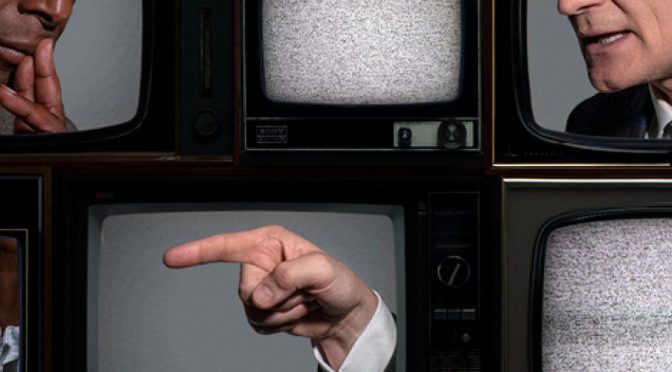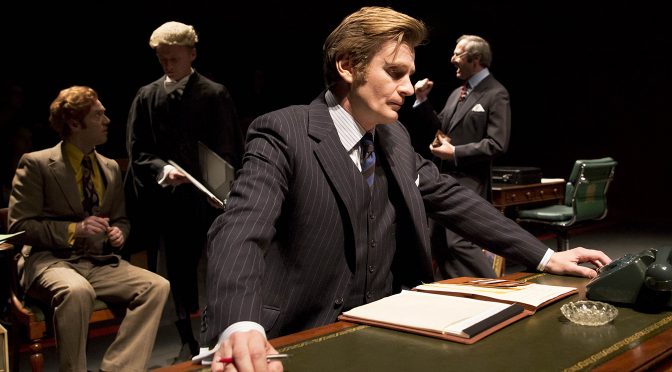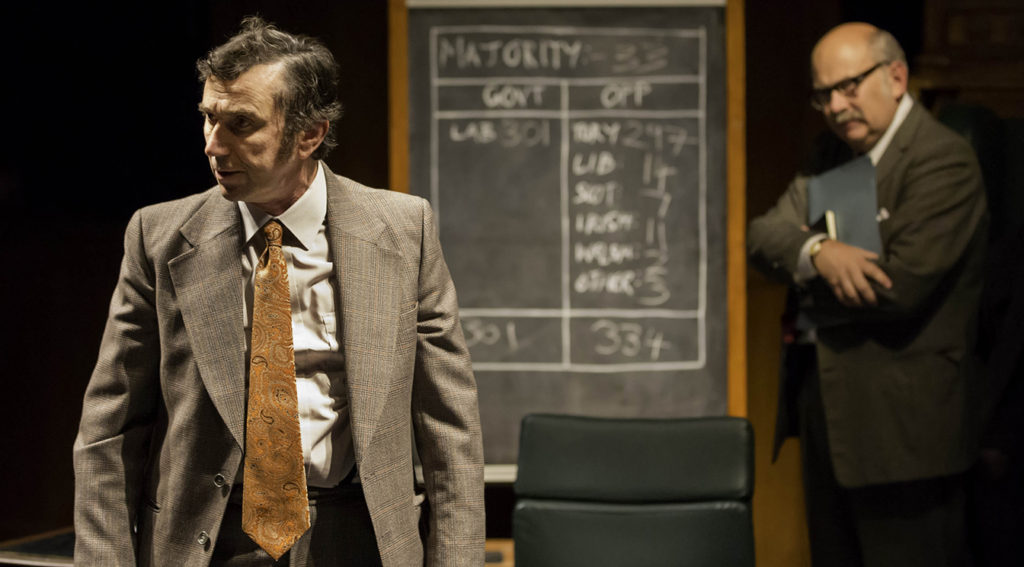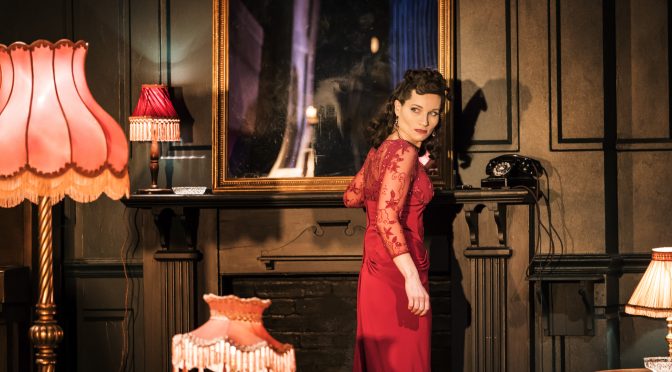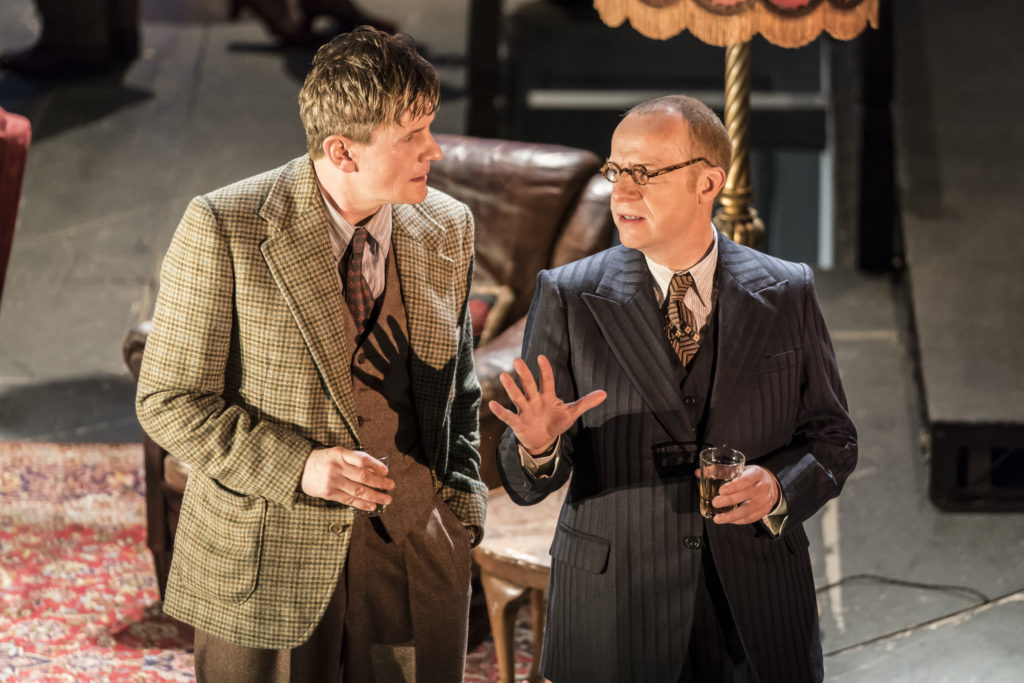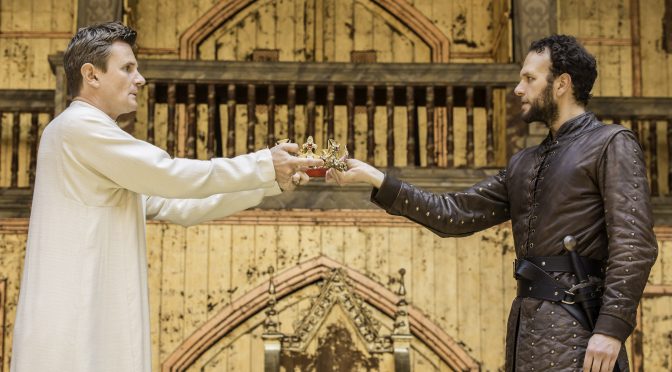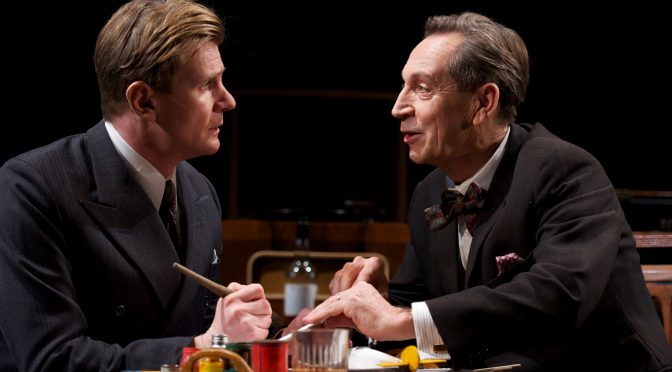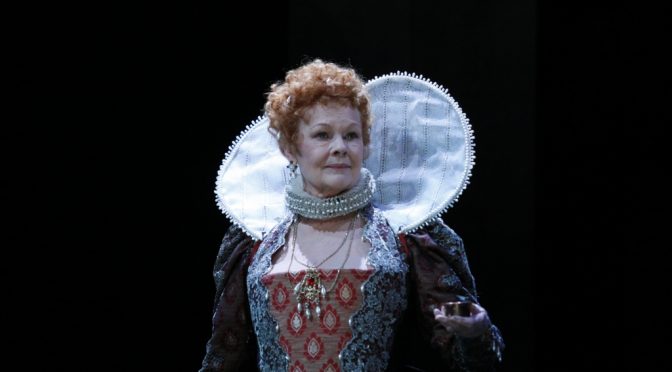James Graham’s new play centres around the televised debates between Gore Vidal and William F. Buckley, Jr. at the 1968 U.S. party political conventions. At opposite ends of the political spectrum, and personally loathing one another, these intellectual heavyweights with big personalities make great theatre.
Initial praise must focus on Charles Edwards and David Harewood who bring Vidal and Buckley to life. These aren’t impersonations, although Harewood might have a lead with Buckley’s odd facial expressions. Instead, the conviction and intelligence of both men comes through. If Buckley has opinions most of us shy from, Harewood (and Graham) still make him credible. Edwards has Vidal’s charm and waspish humour to a tee. Seeing Vidal’s sense of mischief turn to increasing anxiety is brilliantly depicted. For both performers, revealing fragility is the key.
Bringing these historic debates to the stage would be enough. But like the documentary that inspired the show, by Morgan Neville and Robert Gordon, Graham wants to do more. The playwright has handled politics and the media before. Here, turbulent times and cultural shifts are efficiently highlighted. Best of Enemies, and the political conflict that Vidal and Buckley embody, comes to be about “the soul of America” – grand claim with terrific dramatic potential.
With the help of director Jeremy Herrin, the play becomes the portrait of a year. The legend that is 1968 is explored in depth with video projections (Luke Halls) and a collection of cameos that serve as a potted history. It’s hard to believe that there is a cast of only ten as riots and famous faces come and go at speed.
There’s a lot to enjoy with the different historical figures who appear. But it’s James Baldwin, depicted with fantastic skill by Syrus Lowe, that I’d argue is the show’s lynchpin. Baldwin’s observations, when talking with Vidal, are disquieting. The theme of privilege is one of many topical notes that show Graham’s skill at interpreting history.
As for connections with the present – does Graham seem too keen? He makes a good case with references to division and violence. But Vidal appears more prophetic than he deserves. The brief appearance by a media studies academic isn’t needed. And the play’s conclusion disappoints. Even at its weakest Best of Enemies works well. Graham’s great skill is to show both Vidal and Buckley as human beings. The psychology may be simplified, even predictable, but these are the last men you imagine feeling sorry for and Graham manages to make you care about them both.
Until 22 January 2022

